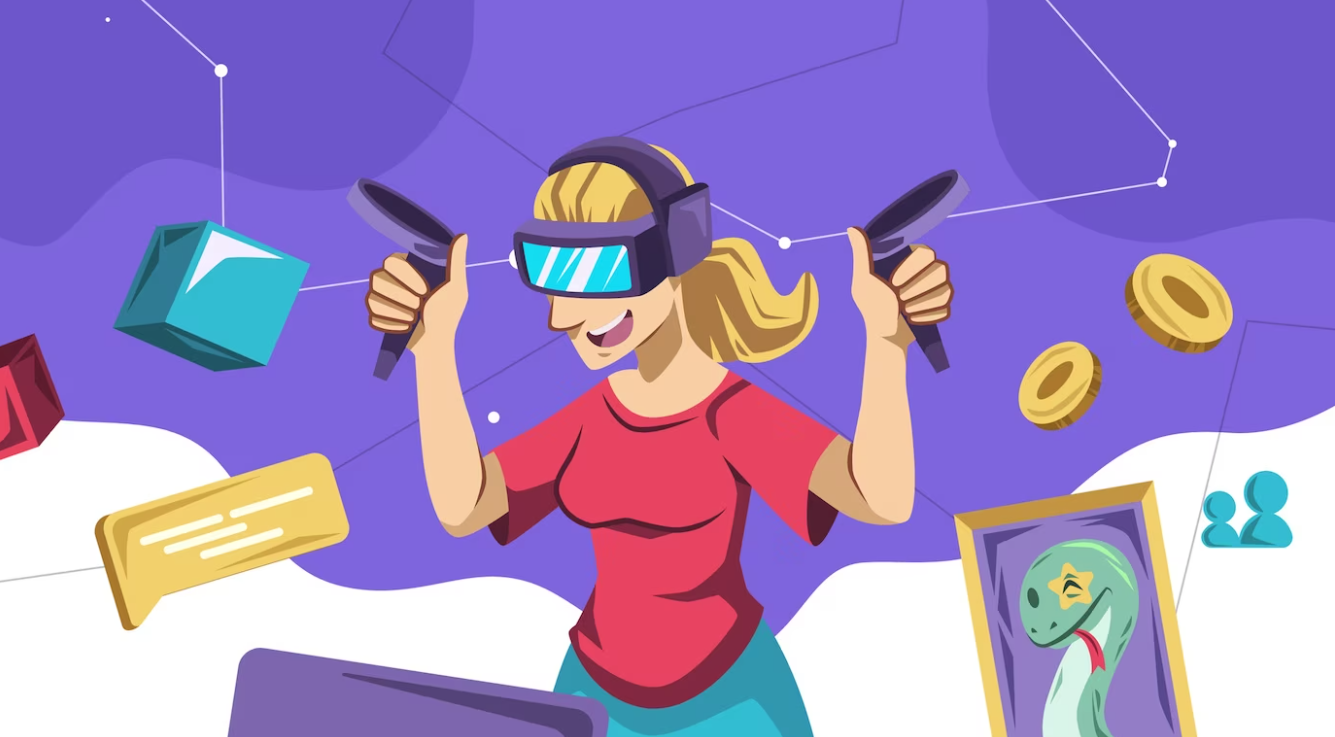The gaming industry is experiencing a revolutionary transformation, thanks to the combined influence of Non-Fungible Tokens (NFTs) and the Metaverse. NFTs have brought about a paradigm shift in the concept of digital ownership, while the Metaverse represents an interconnected virtual space where players can explore, interact, and create. As these technologies continue to evolve and intersect, their impact on the gaming world is nothing short of groundbreaking. In this blog, we explore the profound influence of NFTs and the Metaverse on gaming, examining how they are shaping player experiences, empowering creators, and redefining the industry.
True Ownership and Player Experiences:
One of the most significant influences of NFTs, NFT Marketplace and the Metaverse in gaming lies in providing players with true ownership of in-game assets. NFTs, which are unique and indivisible tokens, enable players to possess virtual items, characters, and properties with verifiable ownership. Unlike traditional gaming assets, which are typically controlled by game developers and can be revoked at any time, NFTs grant players complete control over their digital possessions.
This newfound ownership enhances player experiences by fostering a sense of value and scarcity. Players can customize and trade their NFT-based assets in open marketplaces, creating vibrant economies within virtual worlds. Furthermore, NFTs enable cross-platform compatibility, allowing players to utilize their virtual items across different games and Metaverse experiences. As a result, players are more invested in their digital identities, and the gaming experience becomes more immersive and personalized.
Empowering Creators and User-Generated Content:
NFTs and the Metaverse empower creators by unlocking new avenues for monetization and creative expression. Game developers, artists, and content creators can tokenize their creations as NFTs, granting them provable ownership and the ability to earn royalties from secondary sales. This shift from traditional intellectual property models to decentralized ownership allows creators to directly engage with their audiences and cultivate dedicated fan bases.
Moreover, the Metaverse fosters a culture of user-generated content (UGC), where players can contribute to the virtual world’s development. This inclusivity promotes diversity in gaming experiences, offering players an ever-expanding array of user-generated games, experiences, and virtual spaces. NFTs enable UGC creators to retain control over their content, and players can own and trade UGC-based assets, further blurring the lines between creators and consumers.
Play-to-Earn Opportunities
The integration of NFTs and the Metaverse has introduced the concept of play-to-earn, revolutionizing the economic landscape of gaming. In traditional gaming, players invest time and effort into building virtual assets without tangible rewards. However, with NFTs, players can now monetize their gaming skills and time by earning rewards in the form of valuable NFT-based assets.
In play-to-earn games, players can complete tasks, participate in challenges, or achieve milestones to earn NFTs, which hold real-world value. These virtual assets can be traded in secondary markets, creating new economic opportunities for players to generate income and invest in their gaming pursuits. Play-to-earn models democratize gaming by allowing players to become stakeholders in the virtual economies they participate in, ultimately revolutionizing the concept of gaming as work and play.
Interconnected Virtual Worlds and Social Experiences
The Metaverse is characterized by interconnected virtual worlds, allowing players to seamlessly transition between different experiences. Best NFT Marketplace plays a crucial role in enabling cross-platform interoperability, allowing players to carry their virtual assets and identities across various Metaverse environments. This integration fosters a sense of continuity and belonging within the virtual community.
The Metaverse also revolutionizes social interactions in gaming. Virtual gatherings, events, and social spaces become increasingly popular, offering players opportunities to connect, collaborate, and engage in real-time experiences. NFTs can serve as digital badges or status symbols, showcasing achievements and participation in unique events within the Metaverse, strengthening the sense of community and camaraderie.
Conclusion
The influence of NFTs and the Metaverse in the gaming world is profound and multifaceted. From granting players true ownership and personalizing their experiences to empowering creators and revolutionizing the economic landscape through play-to-earn models, these technologies are redefining the future of gaming. As NFTs and the Metaverse continue to evolve and intersect, they hold the potential to create a more inclusive, immersive, and empowering gaming ecosystem, where players become active participants and creators shape the virtual landscapes. The gaming industry’s journey into the era of NFTs and the Metaverse promises endless possibilities and an exciting future for players and creators alike.



